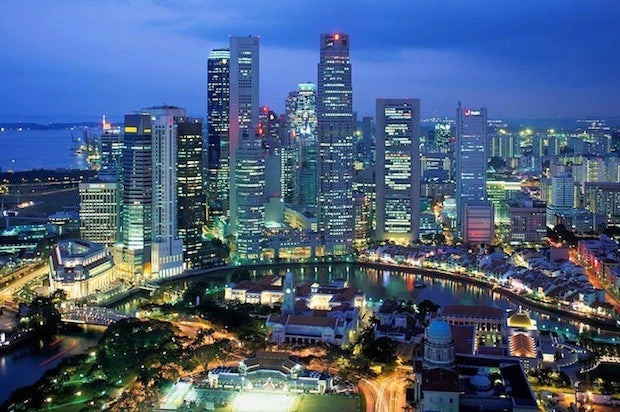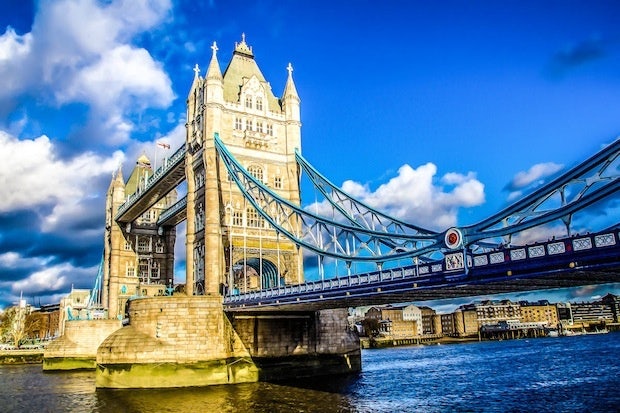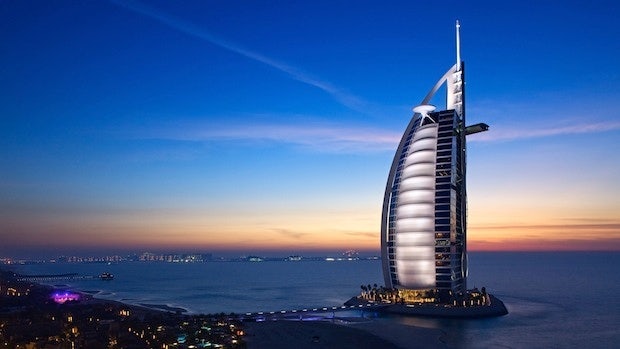
Singapore boasts one of the least restrictive visa policies among top destinations for China's wealthy tourists.
In addition to finding new ways to attract high-spending Chinese travelers, favorite destinations across the globe have been making significant efforts to reduce bureaucratic red tape that might be keeping them out.
Quickly becoming a force of nature in the international retail market, Chinese travelers have cemented their position as the world’s top outbound tourism spenders. At the moment, it should be no surprise that the governments of many destinations favored by China’s elite are working as fast as possible to shift visa policy in order to open their countries up for more Chinese influx and attract this new wealth.
To help get some perspective on the evolving relationship between visa policies and Chinese visitor rates, Jing Daily has put together a round-up of the far-reaching changes in visa policy among the top ten destinations of China’s luxury travelers, according to Hurun's report on "The China Luxury Traveler" from earlier this year.
France#
China continues its love affair with Paris, which is extremely popular with Chinese tourists of varying income levels. As a member of the Shengen Area, France enjoys relative accessibility as part of a visa initiative that allows tourists to hop across 26 European Union countries on the same visa. According to the The Telegraph, in the past year, the percentage of Chinese tourists visiting France has jumped by 23.3 percent to reach 1.4 million. In 2012, to further expedite visa processes for France, authorities created a joint visa office with Germany in Beijing. Already a successful development, the joint visa initiative lays claim to a 20 percent increase in visas processed since its inception.
United States#
Taking the initiative to entice more Chinese outbound luxury shopping in America, the U.S. government has drafted a new visa program intended to be more flexible and convenient, which will go into effect on October 16. Streamlining the visa procedure, the policy shift will allow prospective tourists to conduct interviews and handle forms through the internet and China’s national CITIC Banks. According to China Daily, there has already been a 26 percent increase in visa applications year-on-year since 2012 and close to an 80 percent increase since 2011. Recently, many Chinese nationals have been attracted to destinations all over America and have made news as the highest-spending overseas visitors to the United States, averaging, for example, US$2,932 per visit to California.

Singapore#
With the easiest entry for Chinese nationals on the list, Singapore remains a close and highly favored shopping destination. Its last visa policy shift in regards to China was the Mutual Visa-Free Agreement of 2011, which dictates that tourists are able to remain in either country for up to 30 days without a visa. Singapore has profited tremendously from Chinese tourists, and according to Xinhua, has seen a doubling of visits and tripling of per-capita expenditure from 2002 to 2011. Moreover, Singapore has continued to gain dramatic momentum with a Chinese visitor influx since the agreement, reporting growth of 30.7 percent more arrivals from 2011 to 2012.
Switzerland#
Although Switzerland counts as one of the more accessible 26 Shengen Area countries, as far as visa procedures, it must be recognized on forms as the main country of travel and tourists have to go through extra processes to be allowed in. Switzerland just became the first continental European country to sign a free trade agreement with China, so as economic dialogue between the two countries continues, visa policy may become another point of leverage.
Switzerland's main shopping draw for China's elite is, of course, its watches: while French brands dominate the listings of most desirable gifts among China’s wealthy, according to this year's Hurun Report, the most oft=given gift to wealthy Chinese men are luxury watches (28 percent of all gifts), and this propensity has made the Chinese the world’s largest consumer of Swiss watches.
UK#
While England in the past has attempted to streamline its visa process, it is still a relatively cumbersome experience to enter the country. Today, the procedure to enter the UK from China involves a trip to the British embassy with many forms, thumbprinting, and generally longer wait times than the Shengen Area, which has resulted in significantly less incoming Chinese nationals. This difficulty in getting Chinese tourists to England has led to an outspoken dissatisfaction with the current policy by many of Britain’s national businesses. Cited by Reuters, a recent report claims that over EUR€268 million of potential retail purchases in London’s West End alone was given up due to the UK’s complicated visa policies for Chinese tourists. Coalitions of British retail businesses, including representatives from Harrods and Burberry, are asking for visa reforms. However, they have been met with little response. Much of the blame has been placed on the Immigration Minister’s priority of a secure national border, leaving London’s retailers to grapple with less incoming Chinese spending, which averages GBP£1,618 per capita—often at least three times as much as any other traveler.

Italy#
According to China Daily, Chinese tourism has grown rapidly in Italy, marked by a 30 percent increase in visas issued to Chinese visitors since last year. Currently, visa procedures are easing with the goal of allowing a projected one million Chinese tourists into the country for the Milan Expo in 2015. On June 3, steps toward this prospect continued with the Italian ambassador to China stating that a new visa policy should materialize within three or four months in order to capitalize on the recent major outbound spending.
Australia#
Australia has recently been making major efforts to orient their casinos, and with them, their visa policy, to a projected 30 million-strong Chinese high-end gambler base. Aggressively going after the Chinese market, Australia has made it possible for expedited visas via online programs. To further take advantage of the auspicious circumstances, gambling tycoons like James Packer have worked with the Australian government to create programs in which those who advance enough money are given special perks like an extra fast-track visa procedure and greater ease of travel back and forth from China. Despite some worry over possible illegal abuses of this system, the Australian government is moving into position to attract a huge sector of luxury gambling devotees from China.
Dubai#
While visa policy hasn’t changed much recently in the UAE, the current situation seems to be conducive to generating a mass influx of wealthy Chinese nationals. Dubai enjoys its status as a luxury vacation spot for the Chinese elite, and among many other countries, holds an Approved Destination Stamp (ADS) from the Chinese government, allowing ease of travel. The ADS program is a bilateral tourism initiative, which leads to easing of visa restrictions in order for countries to host Chinese tourist groups. The program also allows Dubai to advertise more heavily in China’s mainland. In response, China is easing visa restrictions by allowing visitors from Dubai to enjoy a 72-hour visa-free stay in China’s major cities. In terms of the luxury market, affluent Chinese are flocking to Dubai to spend money on Dubai's opulent accommodations.

Germany#
In order to expedite the country's visa procedure and attract more Chinese tourists, German officials have opened up a joint tourism office with France in Beijing, where it’s possible to apply for visas to both countries simultaneously. In 2012, Germany eased visa restrictions in order to increase Chinese outbound spending, and in the same year, boasted around more than 1.6 million Chinese overnight stays. The German National Tourism Board expects the number of Chinese visitors to double in the next ten years as cooperation between governments and tourism marketing organizations continue.
Maldives#
As the number one source of capital for the island country, rich Chinese love to vacation in the Maldives. While this country doesn’t require a visa for trips from the mainland, it is a good place to understand some of the new orientations, and recently, tricky circumstances hotels and resorts are dealing with in terms of wealthy Chinese tourists. With a reported 56.7 percent rise in tourist numbers from 2010 to 2011 and a year-on-year growth in the double digits, the Maldives have quickly become a hot spot for Chinese vacations and honeymoons.
Lately, the Maldives have been the subject of some controversy due to both political upheavals and one resort’s alleged attempts to keep Chinese tourists from eating instant noodles. According to International Business Times, the management of high-end beach house Iruveli were accused of discriminating against Chinese nationals and are now the target of a mass Chinese boycott. Allegedly a response to the habit of high-spending Chinese tourists bringing their own cache of instant noodles to eat in lieu of local restaurants, the hotel managers were accused of intentionally leaving out tea kettles in rooms taken by Chinese guests (marked on booking documents as "CN" for “Cup Noodles”) in order to push tourists to spend more at local restaurants.